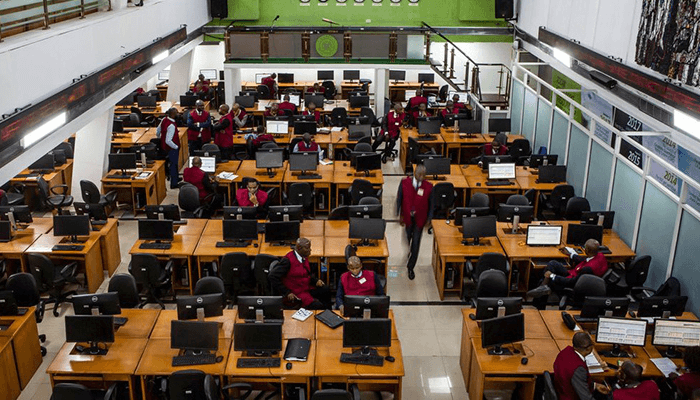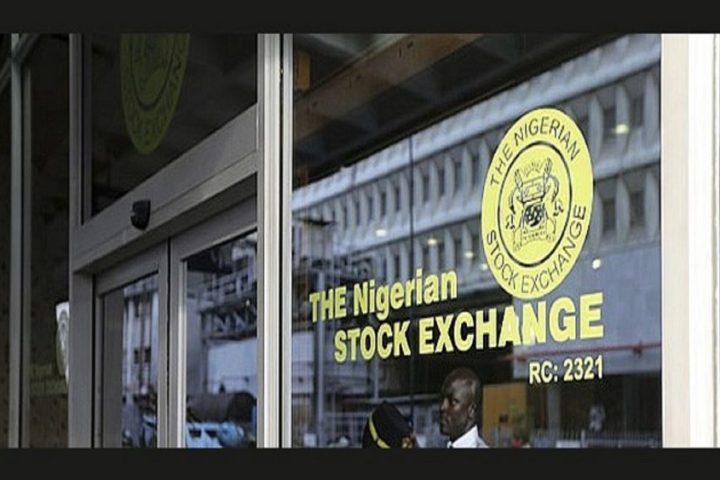Equity Market Sees Decline Amid Weak Catalysts
On Tuesday, Nigeria’s equity market continued its decline as investors showed caution, selling off stocks like the newly listed Aradel, along with established firms like Cadbury and Academy Press. The Nigerian Exchange Limited (NGX) All-Share Index (ASI) fell by 0.66%, from 98,708.9 points to 98,058.07 points, causing the overall market capitalization to dip to N59.418 trillion.
Investment experts attributed this trend to a lack of market catalysts that could drive aggressive buy-side activity. “Investors are treading cautiously,” said Tony Ijeoma, a market analyst at CG Capital. “With inflation concerns and limited fresh catalysts, many prefer to wait it out rather than commit heavily.”
Join our WhatsApp ChannelForeign Portfolio Investment Trends in the Equity Market
One of the notable influences on the Nigerian equity market is the role of Foreign Portfolio Investment (FPI). Coronation Research’s October 28 report, titled “Is Foreign Investment Getting Better?”, indicated that FPI had initially picked up earlier this year, mainly due to the Central Bank of Nigeria (CBN) resolving a backlog of foreign exchange demands. However, the trend has recently slowed.
According to the report, “Foreign Portfolio Investment has picked up but has been trending down in recent months. Where will it go now?” This has left investors curious about the next steps. Coronation analysts also noted that “FPI is often invested in short-term government securities, and this money needs to be paid back soon, usually within a year.”
READ ALSO: Nigeria’s Equity Market Begins Week With A Dip Despite Positive Outlook
The recent dip in the equity market could signal further caution from foreign investors, especially if currency stability remains uncertain. As one market strategist put it, “The equity market may see continued turbulence unless there are solid moves to stabilize the naira.”
Aradel’s Listing Affects Equity Market Sentiment
One of the biggest moves on Tuesday involved Aradel, a newly listed stock, whose price fell sharply by N50 or 8.33 percent, from N600.10 to N550.10. Analysts have pointed to this new listing as both a fresh opportunity and a challenge for market balance.
“We’re making strategic adjustments to keep our portfolio neutral regarding Aradel’s impact,” said a senior analyst at a Lagos-based investment firm. “This week, we’ve made slight changes to top-six holdings, but we plan no further adjustments.”
The effect was visible as major stocks also declined, with Cadbury’s price dropping from N18.20 to N16.40, marking a loss of 9.89 percent, and Academy Press decreasing from N3.14 to N2.83, a 9.87 percent drop. As a result, the market’s year-to-date return slid to 31.14 percent, with a weekly decrease of 1.40 percent and a month-to-date dip of 0.51 percent.
Market Liquidity and the Outlook Ahead
Despite the decline, trading activity remained relatively high. On Tuesday, 399,324,907 shares worth N8.925 billion were exchanged across 9,547 deals. Stocks such as UBA, Chams, Transcorp, Zenith Bank, and Access Holdings were the most actively traded.
Yet, many investors are remaining cautious. “We’re witnessing a market where volume is high, but value perception is low,” observed Miriam Oke, an independent financial consultant. “Until stronger economic signals appear, like government support for market stability or improved foreign exchange rates, investors may avoid making high-stakes investments.”
Looking Ahead for Nigeria’s Market Stability
With the lack of clear catalysts, the Nigerian equity market may face continued volatility in the short term. Analysts predict that only significant moves to stabilize foreign exchange rates or government incentives could encourage more robust buy-side activity.
As highlighted in Coronation Research’s recent report, the near-term future of the equity market depends largely on broader economic policies. “There is a lot at stake for both local and foreign investors,” said Ijeoma. “The current uncertainty may be manageable, but long-term growth will need clear economic signals and improved market sentiment.”
With the equity market’s year-to-date performance at 31.14 percent, eyes are on both the Central Bank’s next moves and potential government actions that could inspire more investor confidence. For now, however, it seems the equity market will remain in a cautious stance as both local and foreign investors assess the evolving landscape.
Emmanuel Ochayi is a journalist. He is a graduate of the University of Lagos, School of first choice and the nations pride. Emmanuel is keen on exploring writing angles in different areas, including Business, climate change, politics, Education, and others.
- Emmanuel Ochayihttps://www.primebusiness.africa/author/ochayi/
- Emmanuel Ochayihttps://www.primebusiness.africa/author/ochayi/
- Emmanuel Ochayihttps://www.primebusiness.africa/author/ochayi/
- Emmanuel Ochayihttps://www.primebusiness.africa/author/ochayi/



















Follow Us